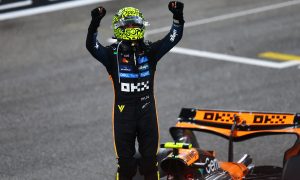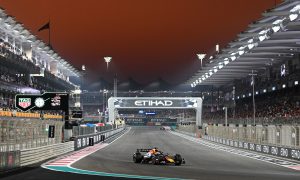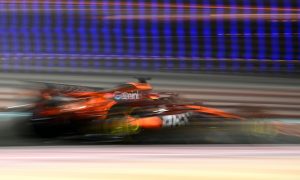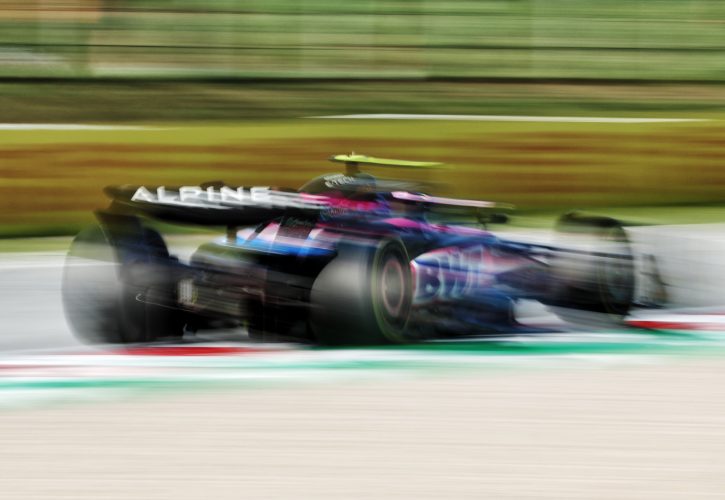
As a regular testing location in the world of Formula 1, teams know the Circuit de Catalunya - Barcelona like the back of their hand.
But the 4.6km track still throws a complex aerodynamic challenge to engineers. While its long main straight demands a low-drag setup for maximum speed – which facilitates overtaking, the track also features a mix of high-speed corners and tight chicanes.
A proper aero compromise which considers a team’s objectives in qualifying (an important factor given Barcelona’s overtaking challenges) and on race day is therefore crucial.
The versatility of the Circuit de Catalunya’s layout has historically implied that if a car performs well at the venue, then it should perform well everywhere.
McLaren – whose MCL38 has now reached an interesting level of versatility of its own – is certainly hoping for this old precept to hold true after Lando Norris’ impressive display in Saturday’s shootout which saw the Briton claim his second career pole in F1, albeit by just 0.020s from Max Verstappen.
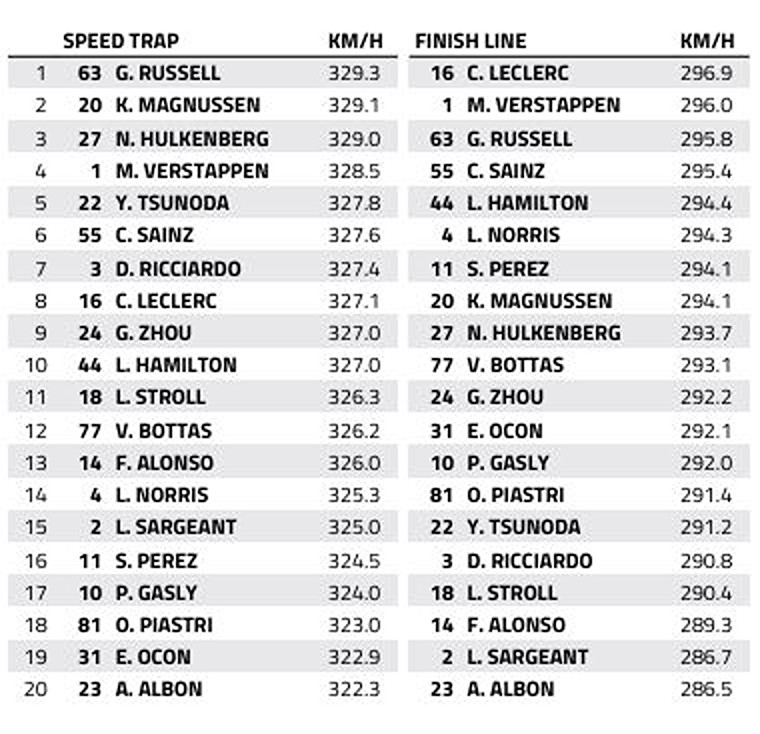
Looking at the Barcelona speed trap readings, Norris was a little over 3 km/h slower down the straight compared to Verstappen’s Red Bull which gives us an indication of how well balanced and aero-efficient his McLaren was around the rest of the track.
It’s unclear if George Russell benefitted from a tow to set the fastest straight-line speed in qualifying, but Mercedes in general is certainly a force to be reckoned with in Sunday’s race, as Lewis Hamilton’s strong performance in Q3 demonstrated.
But as usual on such a technically demanding track, tyre management will inevitably come into play in the race. Although it might be a lesser factor than otherwise anticipated due to Sunday’s forecast for overcast skies and lower temperatures.
This should allow teams to strategize around a two-stop race – the fastest option – and make good use of Pirelli’s Soft compound, a tyre that would be much harder to manage in blistering thermal conditions.
“On paper, the quickest strategy does indeed involve the use of two sets of C3 (softs) and one of C2 (mediums),” commented Pirelli F1 boss Mario Isola.
“We can rule out a one-stop strategy because it’s too slow, but the idea of a four stint, three-stop race is not so far-fetched, being only a handful of seconds slower than a two-stop.
“How the drivers manage tyre performance over each stint will also be very important, something which the teams worked on very carefully in the final free practice session.”
Despite Norris’ pole performance, Verstappen tops our predictions for Sunday’s race although no one is forecasting a runaway win for the Dutchman in Barcelona, with Norris and Mercedes’ drivers snapping at the Red Bull charger’s heels.
Ferrari? Based on the SF-24’s lack of downforce relative to its rivals, it’s unlikely the Italian outfit will be in the mix for a podium finish, barring any unforeseen circumstances helping its cause.
Keep up to date with all the F1 news via Facebook and Twitter




